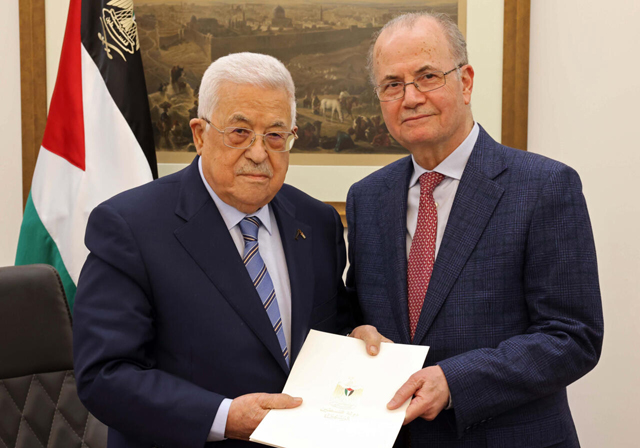
RAMALLAH, Palestinian Territories, March 15, 2024 (BSS/AFP) - Palestinian president Mahmud Abbas has appointed Mohammed Mustafa, a long-trusted adviser on economic affairs, as prime minister, the official Wafa news agency said on Thursday.
Mustafa's appointment comes less than three weeks after his predecessor, Mohammed Shtayyeh, resigned, citing the need for change after the Hamas attack of October 7 triggered war with Israel in Gaza.
The 69-year-old now faces the task of forming a new government for the Palestinian Authority, which has limited powers in parts of the Israeli-occupied West Bank.
Mustafa, who studied at George Washington University in Washington, is an independent executive committee member of the Palestine Liberation Organisation -- dominated by the ruling Fatah movement.
He has served as deputy prime minister for economic affairs, held a board seat on the Palestine Investment Fund and worked in a number of senior positions at the World Bank.
He has also advised the Kuwaiti government and the sovereign wealth fund of Saudi Arabia, the Public Investment Fund.
Since 2007, control of the Palestinian territories has been divided between Abbas's Palestinian Authority in the West Bank and Hamas in the Gaza Strip.
Mustafa was involved in reconstruction efforts in Gaza after Israel's 2014 invasion.
The current Gaza war broke out after Hamas attacked southern Israel on October 7, which resulted in the deaths of around 1,160 people, mostly civilians, according to an AFP tally of Israeli figures.
The retaliatory Israeli military offensive in Gaza has killed at least 31,341 people, most of them women and children, according to the territory's health ministry.
During the war, violence in the West Bank has flared to levels unseen in nearly two decades.
Israeli troops and settlers have killed at least 430 Palestinians in the West Bank since the Gaza war began, according to the health ministry in Ramallah.
The United States and other powers have called for a reformed Palestinian Authority to take charge of all Palestinian territories after the end of the war.
Shortly after Shtayyeh's resignation in late February, Palestinian factions including Hamas and Fatah participated in talks hosted by Russia that addressed the war in Gaza and post-war plans.
Afterwards the factions said in a statement they would pursue "unity of action" in confronting Israel.